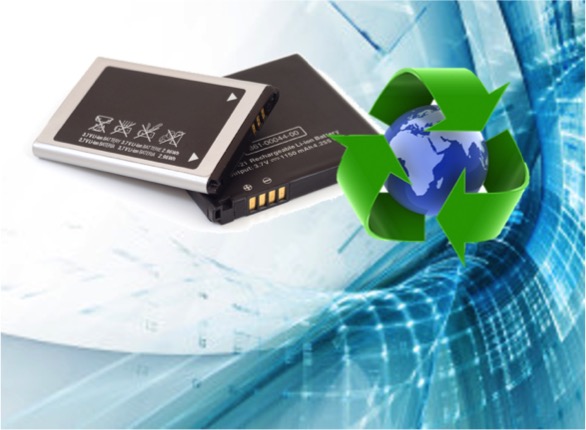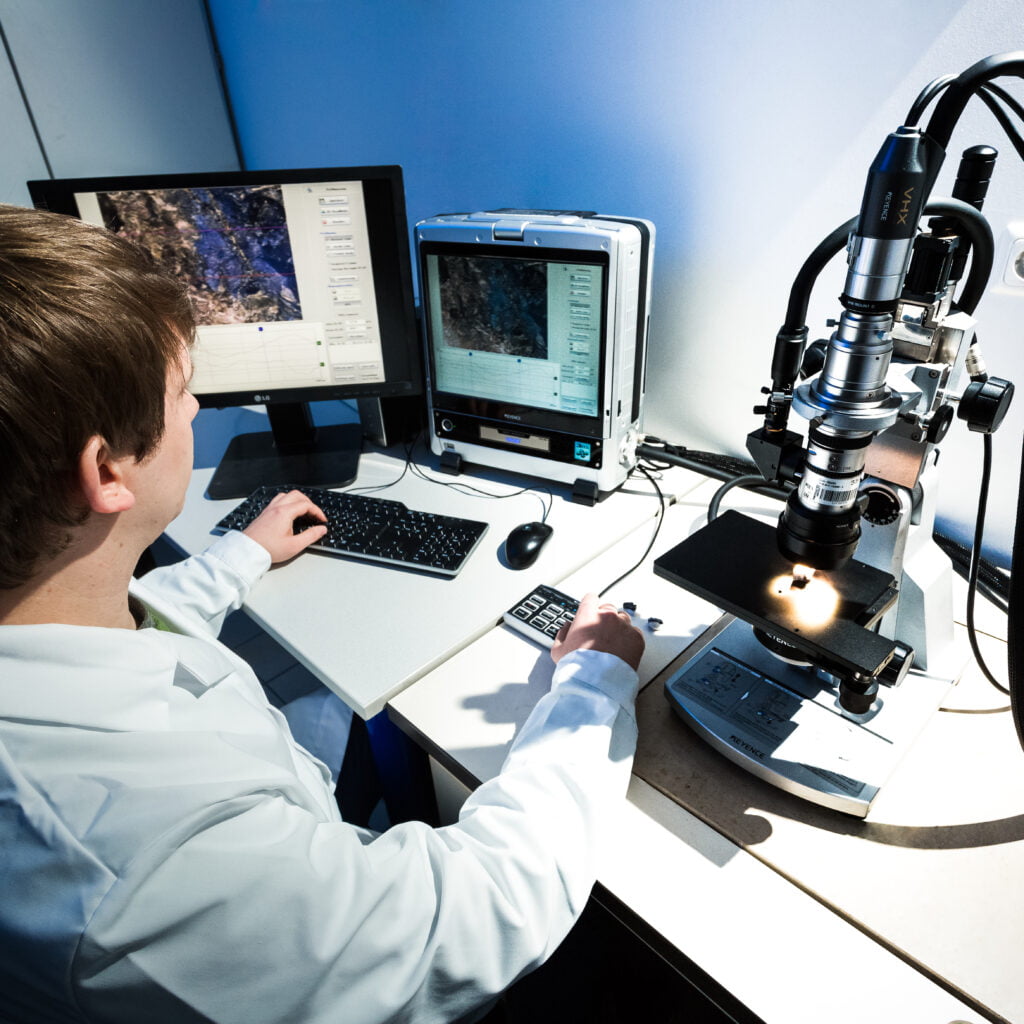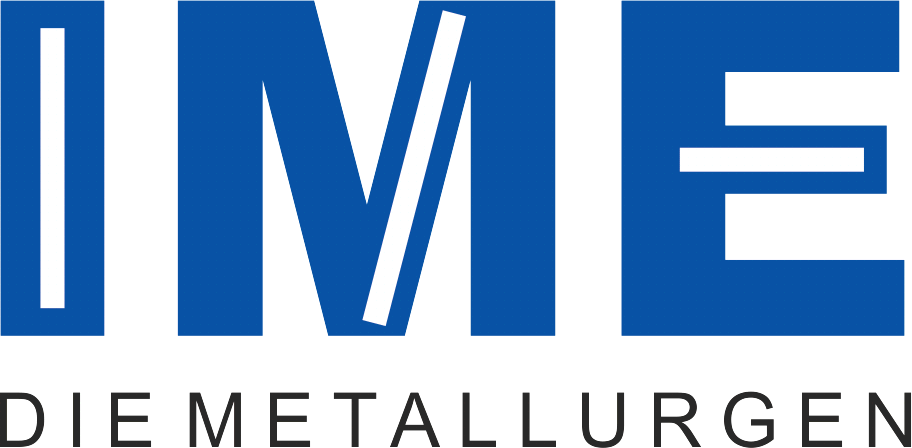Forschung » Kreislaufwirtschaft von Batterien
Das IME repräsentiert den Bereich der Prozessmetallurgie und Metallrecycling an der RWTH Aachen. Aufgrund eines wachsenden öffentlichen, politischen und industriellen Interesses am Batterie-Recycling hat das IME systematisch optimale pyrometallurgische und hydrometallurgische Recycling-Konzepte für alle gängigen Batteriesysteme entwickelt. Dies erfolgte in Zusammenarbeit mit Industriepartnern und auch mittels öffentlich geförderter Projekte.
Einige dieser Methoden wurden bereits industriell umgesetzt und wurden als BAT (Best Available Technology) eingestuft.
Das IME entwickelt auch weitere, innovative und effiziente Recycling-Konzepte für die Batterien der Zukunft (Next Generation Batteries).
Die Energiespeicherung ist eine zentrale Herausforderung für die globale Wende hin zu erneuerbaren Energien. Hier können Lithium-Ionen-Batterien (LIB) als führende Technologie gesehen werden. Die Forschung am IME im Bereich des Batterie-Recyclings berücksichtigt auch die Umweltauswirkungen der Extraktion, Behandlung und Verarbeitung von kritischen Rohstoffen für LIB.
Alumni:
- Dr.-Ing. Lilian Schwich geb. Peters
- M.Sc. Paul Sabarny
- M.Sc. Dominic Dittmer
- M.Sc. Claudia Vonderstein geb. Schier
- M.Sc. Christin Stallmeister
- M.Sc. Wei Song
- Dr.-Ing. Honggang Wang
- Dipl.-Ing. Thomas Träger
- Dr.-Ing. Matthias Vest
- Dr.-Ing. Tim Georgi-Maschler
- Dr.-Ing. Ricardo Sanchez
- Dr.-Ing. Tobias Müller
- M.Sc. Emanuel Sebastian Drude
- M.Sc. Dzeneta Vrucak
- Dr.-Ing. Ksenija Milicevic Neumann
- M.Sc. Dominik Büscher geb. Schmitz

Projektliste
- EarLi: Extraction and purification of lithium hydroxide monohydrate from used electromobile Li-ion batteries for battery cell production
- HVBatCycle – HV-battery recycling and resynthesis processes for sustainable and functionally preserved material cycles
- CLIMA – Chemical-free lithium recovery from lithium-ion based spent batteries
- S²taR – Development of All-Solid-State Battery Recycling
- HydroLIBRec- optimized process chain for hydromechanical Li-ion-battery-recycling
- SIMTEGRAL – Integrated multi Scale System Simulation and sustainability assessment of primary and circular raw material supply chains for Li-ion Batteries
- DiRectION – Data mining in the recycling of lithium-ion battery cells
- PyroLith – Development of a stable process based on Pyrometallurgy, Slag preparation and Hydrometallurgy for Li recovery from Mn-containing slags
- ecoLiga – Recycling and resynthesis of carbon materials from lithium batteries: Recovery, processing, reuse and adapted cell design
- EARLIMET – Early Stage-Metal Recovery for Energy- and Resource Efficient Recycling of Li-Ion Batteries
- AURRELIA – Optimization of wet processing techniques for the recovery of recyclable fractions from spent lithium-ion batteries
- Preliminary study – Development of a basic concept for a “Circular Value Creation” project center in Ibbenbüren
- greenBattUse – Support project Battery life cycle
- ProLiMo – Process development for lithium recovery from Li-ion batteries for tomorrow’s raw material security
- Central project – Slag synthesis, design and characterization
- InnoRec – Innovative Recyclingprocesses for new Lithium-Cellgenerations
- Libero – Near zero waste Hydrometallurgy for spent Li-Ion batteries- multi element recovery for maximized recycling efficiency
- Si-Drive – Silicon Alloying Anodes for High Energy Density Batteries comprising Lithium Rich Cathodes and Safe Ionic Liquid based Electrolytes for Enhanced High VoltagE Performance
- MERCATOR – Material Efficient Recycling for the Circular Economy of Automobile Storage by no Waste Technology
- Batteries2020: Towards realistic European Competitive Automotive Batteries
- Demonstration plant for a cost-neutral, resource-efficient processing of disused Li-Ion batteries of electromobility
- EcoBatRec- Demonstration system for cost-neutral, resource-efficient processing of spent Li-ion batteries from electromobility
- Recycling process for spent nickel metal hydride batteries from future hybrid vehicles and consumer applications
- Sustainable mobility concepts based on electromobility and urban infrastructure
- Technical Feasibility and Legal Frame of Spent-Portable-Battery-Recycling in Mexico
- Potential for the recovery of valuable metals, especially lithium from batteries of future electric vehicles
- Recovery of recyclables from future Li-ion based automotive batteries
- HELIOS – High Energy Lithium-Ion Storage Solutions
- Process development for the recycling of zinc-carbon / alkaline-manganese batteries with optimized recycling efficiency
- “LiVe” lithium battery composite structures
- Recovery of raw materials from Li-Ion accumulators
- Recovery of valuable metals nickel, cobalt and rare earth from nickel-metal hydride battery scrap for reuse in battery alloys
Publikationen
| Jahr | Publikationen |
|---|---|
| 2025 |
Beitrag in Fachzeitschrift
Metals 2025, 15, 739. https://doi.org/ 10.3390/met15070739
|
| 2025 |
Beitrag in Fachzeitschrift
Green Chem., 2025, https://doi.org/10.1039/D5GC00581G
|
| 2025 |
Kongress- oder Tagungsbeitrag
9th International Slag Valorisation Symposium | 8-11/04/2025
|
| 2025 |
Poster
April 2025 DOI: 10.13140/RG.2.2.27616.39688 Conference: Berliner Konferenz Metallkreisläufe
|
| 2025 |
Poster
April 2025 DOI: 10.13140/RG.2.2.29142.77121 Conference: Berliner Konferenz Metallkreisläufe
|
| 2025 |
Beitrag in Fachzeitschrift
Journal of Environmental Management 377 (2025), 124616, https://doi.org/10.1016/j.jenvman.2025.124616
|
| 2024 |
Beitrag in Fachzeitschrift
Minerals 2024, 14, 1254. https://doi.org/10.3390/min14121254
|
| 2024 |
Beitrag in Fachzeitschrift
Metals 2024, 14, 1172. https:// doi.org/10.3390/met14101172
|
| 2024 |
Beitrag in Fachzeitschrift
Journal of Power Sources 624 (2024) 235582; https://doi.org/10.1016/j.jpowsour.2024.235582
|
| 2024 |
Beitrag in Fachzeitschrift
Minerals Engineering 217 (2024) 108918; https://doi.org/10.1016/j.mineng.2024.108918
|


